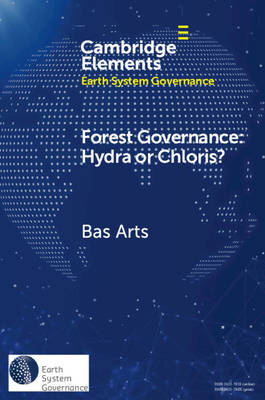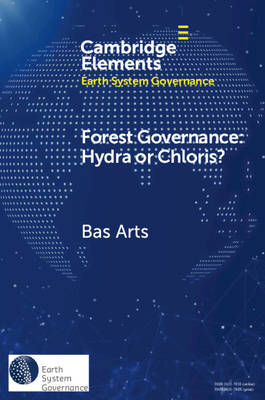
- Afhalen na 1 uur in een winkel met voorraad
- Gratis thuislevering in België vanaf € 30
- Ruim aanbod met 7 miljoen producten
- Afhalen na 1 uur in een winkel met voorraad
- Gratis thuislevering in België vanaf € 30
- Ruim aanbod met 7 miljoen producten
Zoeken
Omschrijving
Many forest-related problems are considered relevant today. One might think of deforestation, illegal logging and biodiversity loss. Yet, many governance initiatives have been initiated to work on their solutions. This Element takes stock of these issues and initiatives by analysing different forest governance modes, shifts and norms, and by studying five cases (forest sector governance, forest legality, forest certification, forest conservation, participatory forest management). Special focus is on performance: are the many forest governance initiatives able to change established practices of forest decline (Chloris worldview) or are they doomed to fail (Hydra worldview)? The answer will be both, depending on geographies and local conditions. The analyses are guided by discursive institutionalism and philosophical pragmatism. This title is also available as Open Access on Cambridge Core.
Specificaties
Betrokkenen
- Auteur(s):
- Uitgeverij:
Inhoud
- Aantal bladzijden:
- 75
- Taal:
- Engels
- Reeks:
Eigenschappen
- Productcode (EAN):
- 9781108810975
- Verschijningsdatum:
- 11/11/2021
- Uitvoering:
- Paperback
- Formaat:
- Trade paperback (VS)
- Afmetingen:
- 152 mm x 229 mm
- Gewicht:
- 136 g

Alleen bij Standaard Boekhandel
+ 63 punten op je klantenkaart van Standaard Boekhandel
Beoordelingen
We publiceren alleen reviews die voldoen aan de voorwaarden voor reviews. Bekijk onze voorwaarden voor reviews.











